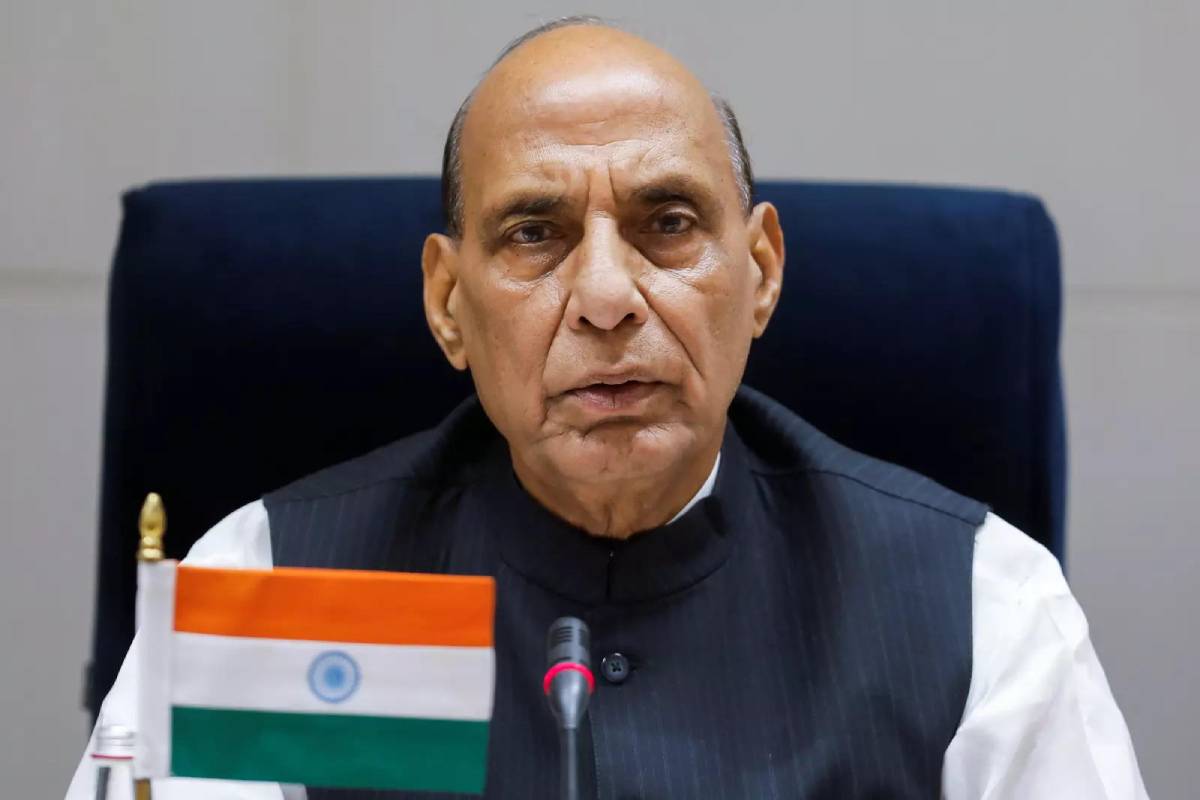Emphasising that the country believed in relationships with other nations on the basis of sovereign equality and mutual respect, Defence Minister Rajnath Singh, on Thursday, stated that a strong and prosperous India would not be built at the cost of others.
Speaking during the 60th National Defence College (NDC) course convocation ceremony here, Rajnath Singh said, ”We believe in helping other nations to realise their full potential. India does not believe in a world order where few are considered superior to others. Our actions are guided by the very essence of human equality and dignity, which is a part of its ancient ethos and strong moral foundations.”
Advertisement
Addressing officers of the Indian Armed Forces, and Civil Services as well as from friendly foreign countries at the convocation ceremony, he affirmed India’s belief in a multi-aligned policy, realised through diverse engagements with multiple stakeholders so that the concerns of all could be addressed for a prosperous future. He termed it as the only way that could lead to shared responsibility and prosperity.
”Realpolitik cannot be the fig leaf for being immoral or amoral. Rather, enlightened self-interest of nations can be promoted within the framework of strategic morality, which is predicated on the understanding and respect for the legitimate strategic imperative of all the civilised nations,” the minister added.
Throwing light on the narrowing gap between internal and external security, he said that new dimensions of threats were being added with changing times that were difficult to classify. Terrorism, which generally fell into internal security, was now classified in the category of external security, as training, funding and arms support of such organisations was being carried out from outside the country.
Describing the vulnerability of critical infrastructure to cyber-attacks as a big concern, Rajnath said sectors such as energy, transport, public sector services, telecommunications, critical manufacturing industries and interconnected financial systems were prone to such threats. He was of the view that information war has the potential to threaten the political stability of a country. He pointed out that the organised use of social media and other online content generation platforms was engineering the opinion and perspective of the masses.
“The deployment of information war was most evident in the ongoing conflict between Russia and Ukraine. Throughout the conflict, social media has served as a battleground for both sides to spread competing narratives about the war and portray the conflict on their own terms. The propaganda campaigns as a means of strategy to shape narratives are by no means new during warfare, but its reach has increased by leaps and bounds due to the shift toward social media as the primary distribution channel,” said Rajnath.
He said the ongoing Ukrainian conflict showed how its ripple effects could adversely impact the whole world. Together, Russia and Ukraine export nearly a third of the world’s wheat and barley, but this conflict had prevented grain from leaving the ‘breadbasket of the world and led to the food crisis in various African and Asian countries. ”The conflict has also fuelled an energy crisis in the world. In Europe, the oil and gas supply has been dwindling. India has also been affected as the Russia-Ukraine war led to a disruption in international energy supply, making the energy import much more expensive,” he said.
Rajnath stressed the need to consider security as a truly collective enterprise, which could create a global order beneficial to all. “National security should not be considered a zero-sum game. We should strive to create a win-win situation for all,” he added.
Referring to the global response to the Covid-19 pandemic, the minister said it highlighted the urgent requirement of multi-national collaboration in information sharing, situational analysis, as also research, development and production of the vaccine.











